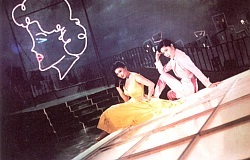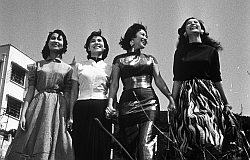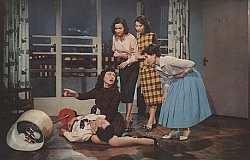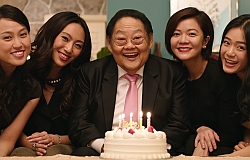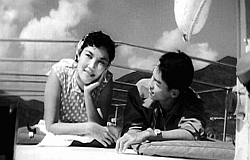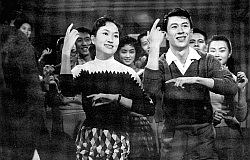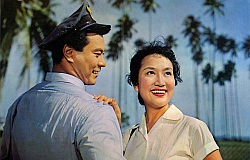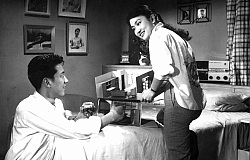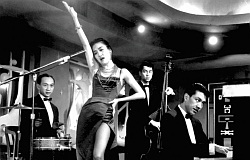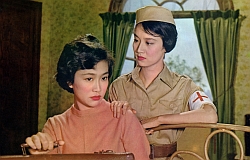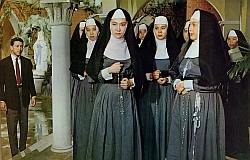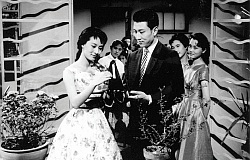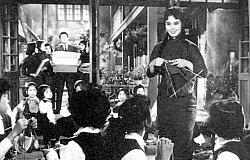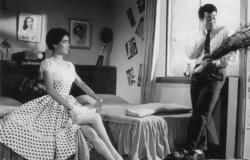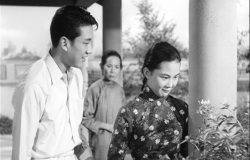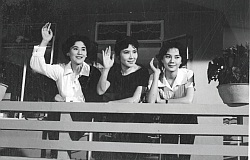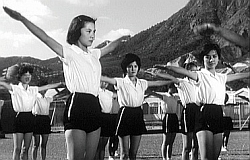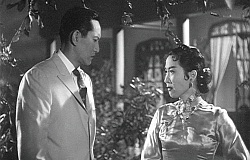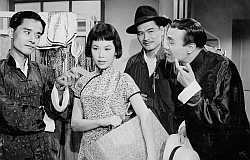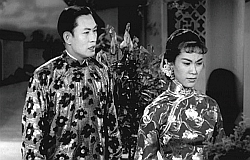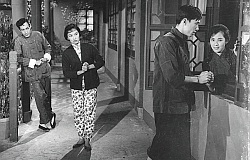Film Screenings
Doe Ching
Doe Ching (1915–1969) Born Qin Fuji in Zhejiang, rose to fame in Hong Kong as a versatile filmmaker whose talents encompassed screenwriting, directing, composing and lyrics writing. Doe had more than 40 directorial and screenwriting credits to his name, mostly wenyi melodramas and musicals, which earned him the accolade, the Literati Director. He settled in Hong Kong in 1949 and launched his career at Great Wall as screenwriter-director before joining Shaw Brothers, and subsequently MP & GI in 1952. Notable works in his oeuvre include: Our Sister Hedy , Calendar Girl , Love Parade (1963), The Blue and the Black (1966). Our Sister Hedy was named best film at 5th the Asian Film Festival, while Les Belles (1961) won him Best Director at the 1st Golden Horse Awards.
Grace Chang
Effortlessly prolific and versatile, Grace Chang's varied roles run the gamut: she is the blithe and down-to-earth Mambo Girl, the quick-witted and capable "Miss Dream Car" and the sensual and sassy Wild Rose all rolled into one. Chang first entered showbiz in 1951 and contributed to MP & GI her exceptional vocal, dancing and acting talents, which endeared her to a wide audience and captivated their ears and souls. Chang was a favourite muse of director Evan Yang, counting the immensely popular Mambo Girl (1957), The Wild, Wild Rose (1960) and Sun, Moon and Star (1961) among their collaborations. Her unique vocal timbre made classics of the hit theme songs, ‘Too Happy for Words (Jajambo)' and ‘Carmen'. An avid Beijing opera fan who has remained active in her artistic pursuits, Chang put a bundles of effort and enthusiasm into organising a gala concert of Beijing operatic tunes just this September.
Tang Huang
Tang Huang (1916–1976), a native of Shanghai and graduate of National University of Politics in Nanjing. Tang began his filmmaking career with Central Motion Picture Company (the predecessor of Central Motion Pictures Corporation) and specialised in making newsreels and documentaries. He worked as director for Asia, Shaws, MP & GI and a number of studios after his move to Hong Kong in 1949, proving himself a dab hand at suspense and romantic comedy. Major works from earlier in his career, Tradition (1955), A Song to Win World Wide Fame (1957) were directed with dainty, delicate precision, their tense and fast-paced plots depicted with entrancing finesse. Tang first garnered mainstream attention with The Husband's Diary (1953) and joined MP & GI's strong stable of contract directors in 1958. Her Tender Heart (1959), Cinderella and Her Little Angels (1959), Sister Long Legs (1960), Beauty Parade (1961) were among his most notable works during his 14-year tenure at the studio. The screenwriter-director went on to work in television in 1972.
Cantonese Productions of MP & GI
To cater to the predominately Cantonese-speaking audience, Cathay began making Cantonese films under the auspices of International Films Distributing Agency in Hong Kong as early as 1954, tapping into the pool of the finest directorial talent that Cantonese cinema had to offer, including Lee Sun-fung and Mok Hong-si. The practice continued well after the establishment of MP & GI, which recruited old hands at Cantonese filmmaking such as Tso Kea, Wong Toi and Wong Tin-lam into its ranks to helm book-to-screen adaptations of literary classics and popular titles into Cantonese gems that captivate generations of viewers with their intriguing twists and turns. Featured in this section are the trio's tours de force at MP & GI of the wenyi, romantic and adapted literary varieties.
The contents of the programme do not represent the views of the presenter.
The presenter reserves the right to change the programme should unavoidable circumstances make it necessary.


